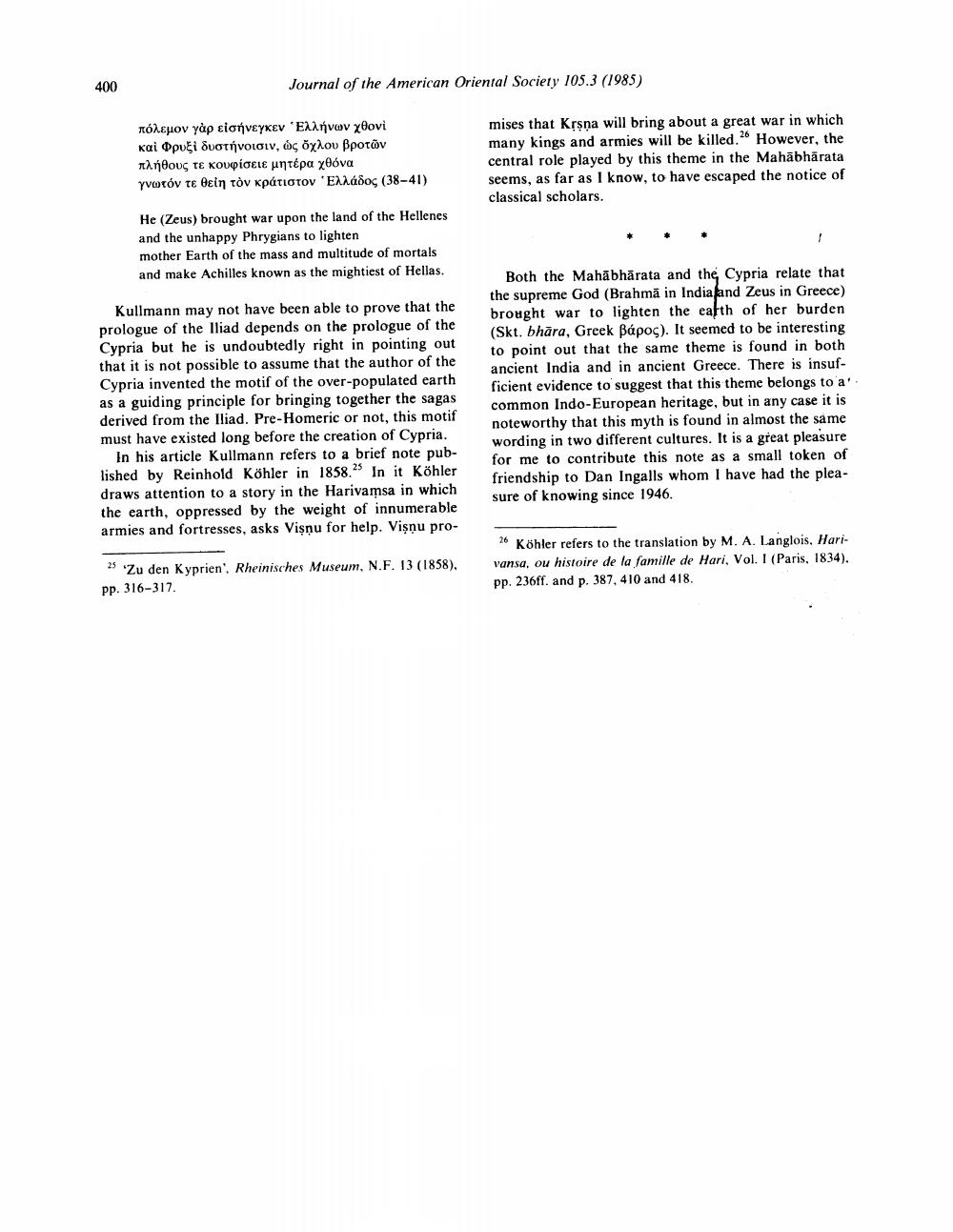________________ 400 Journal of the American Oriental Society 105.3 (1985) πόλεμον γάρ εισήνεγκεν Ελλήνων χθονί και Φρυξί δυστήνοισιν, ώς όχλου βροτών πλήθους τε κουφίσειε μητέρα χθόνα yuwrov te bein tov kpatiotov 'Elnadoc (38-41) mises that Krsna will bring about a great war in which many kings and armies will be killed. 20 However, the central role played by this theme in the Mahabharata seems, as far as I know, to have escaped the notice of classical scholars. He (Zeus) brought war upon the land of the Hellenes and the unhappy Phrygians to lighten mother Earth of the mass and multitude of mortals and make Achilles known as the mightiest of Hellas. Kullmann may not have been able to prove that the prologue of the Iliad depends on the prologue of the Cypria but he is undoubtedly right in pointing out that it is not possible to assume that the author of the Cypria invented the motif of the over-populated earth as a guiding principle for bringing together the sagas derived from the Iliad. Pre-Homeric or not, this motif must have existed long before the creation of Cypria. In his article Kullmann refers to a brief note published by Reinhold Kohler in 1858.25 In it Kohler draws attention to a story in the Harivamsa in which the earth, oppressed by the weight of innumerable armies and fortresses, asks Visnu for help. Visnu pro Both the Mahabharata and the Cypria relate that the supreme God (Brahma in India and Zeus in Greece) brought war to lighten the earth of her burden (Skt. bhara, Greek Bapos). It seemed to be interesting to point out that the same theme is found in both ancient India and in ancient Greece. There is insufficient evidence to suggest that this theme belongs to a. common Indo-European heritage, but in any case it is noteworthy that this myth is found in almost the same wording in two different cultures. It is a great pleasure for me to contribute this note as a small token of friendship to Dan Ingalls whom I have had the pleasure of knowing since 1946. 25 "Zu den Kyprien', Rheinisches Museum, N.F. 13 (1858), pp. 316-317. 20 Kohler refers to the translation by M. A. Langlois, Harivansa, ou histoire de la famille de Hari, Vol. I (Paris, 1834), pp. 236ff. and p. 387, 410 and 418.




